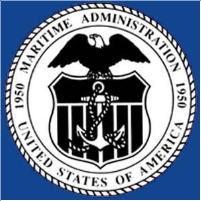U.S. Has to Pay to Get Rid of Obsolete Ships
Wednesday, September 09, 2009

When it comes to disposing of old merchant vessels, the U.S. government can’t even give them away. A drop in steel prices, combined with stringent environmental rules, has undercut the value of aging maritime ships in the eyes of salvage companies that have gone from paying millions for vessels to receiving millions for taking them off the government’s hands.
For example, last year the Maritime Administration had a tentative deal to sell four ships for $3.5 million. But after the economy tanked, buyers pulled out, and the federal government had to pay $1.8 million to unload the vessels.
The maritime fleet, once numbering 2,277, is now down to 177. But getting rid of these last vessels may prove difficult. That’s because countries that used to buy the old ships—India, Pakistan and Bangladesh—can’t because of prohibitions on the U.S. government exporting hulks containing PCBs in their metal.
-Noel Brinkerhoff
U.S. Forced to Pay Recyclers To Take Old Merchant Ships (by Steve Vogel, Washington Post)
- Top Stories
- Unusual News
- Where is the Money Going?
- Controversies
- U.S. and the World
- Appointments and Resignations
- Latest News
- Trump Renames National Football League National Trump League
- Trump to Stop Deportations If…
- Trump Denounces World Series
- What If China Invaded the United States?
- Donald Trump Has a Mental Health Problem and It Has a Name






Comments